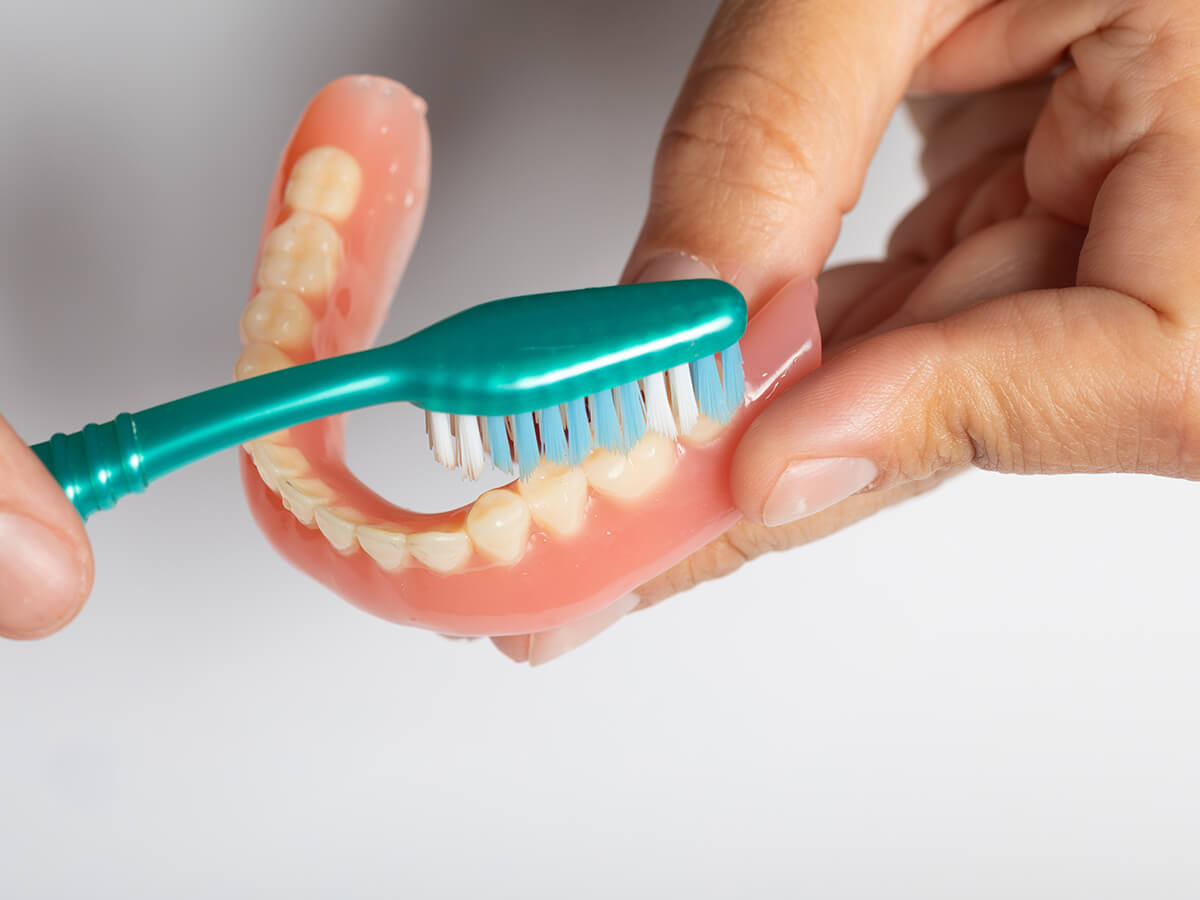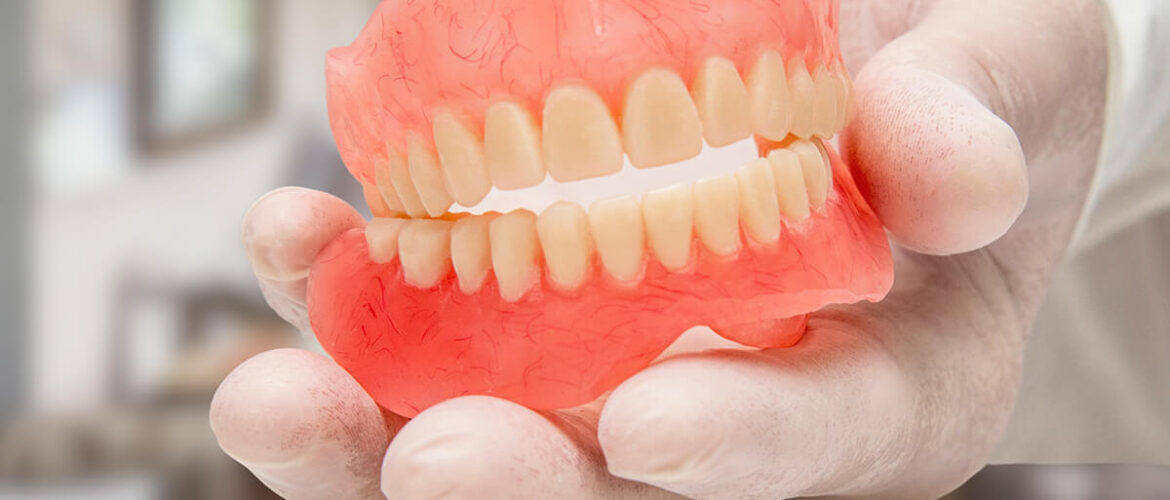Dentures offer a practical solution for those who have lost their teeth, improving both appearance and functionality. Despite their benefits, several myths about dentures persist, leading to misunderstandings and improper care. It’s important to recognize the truth behind these myths to maintain good oral health and make the most of your dentures.
Dentures and Their Importance in Oral Health
Dentures are removable dental appliances designed to replace missing teeth and restore the natural function of the mouth. They help individuals regain the ability to eat, speak, and smile with confidence. Proper care and maintenance of dentures are vital to ensure long-lasting health benefits and comfort.
If not properly managed, dentures can cause discomfort, damage to the gums, and other oral health issues. Taking care of your dentures isn’t just about keeping them clean, it’s about maintaining the overall health of your gums and the structures that support them. Regular check-ups and proper habits are essential for ensuring your dentures fit well and function as intended.
Debunking 10 Common Myths About Dentures and Their Impact on Oral Health

There are many myths surrounding dentures that could potentially harm your oral health if you follow them. It’s important to distinguish fact from fiction to ensure your dentures fit properly, stay clean, and continue to benefit your overall oral care.
- Myth #1: Dentures Are Only for Elderly People
Many people believe that dentures are only needed by older adults, but that’s not true. Dentures can be used by people of all ages who lose teeth due to accidents, disease, or severe decay.Impact on Oral Health: The myth that dentures are only for seniors can delay necessary dental care for younger people. Without early intervention, young adults may face long-term issues like bone loss or gum deterioration, which can complicate their treatment options later on.
- Myth #2: Dentures Don’t Need Regular Cleaning
Some people think dentures don’t require the same level of care as natural teeth, but that’s a dangerous misconception. Just like real teeth, dentures need to be cleaned every day to remove food particles, plaque, and bacteria.Impact on Oral Health: Failure to clean dentures properly can lead to oral infections, bad breath, and gum irritation. Regular cleaning ensures that the dentures remain comfortable, effective, and free from harmful bacteria that could cause further oral health problems.
- Myth #3: Dentures Are Uncomfortable and Don’t Fit Well
It’s a common myth that dentures are always uncomfortable and never quite fit right. However, dentures are custom-made to fit the shape and size of your mouth, and advancements in denture technology make them much more comfortable than ever before.Impact on Oral Health: Ill-fitting dentures can cause painful sores and affect your ability to chew or speak. When they don’t fit properly, they can also lead to additional problems, like gum irritation or even jaw misalignment.
- Myth #4: Dentures Will Make You Look Unnatural or Fake
Some individuals avoid dentures because they believe they’ll look unnatural. In reality, modern dentures are designed to look as close to natural teeth as possible, with customizable features to match your smile.Impact on Oral Health: Worrying about the appearance of dentures may cause people to delay or avoid getting them. This can lead to missing out on a solution that not only improves appearance but also enhances overall dental health and self-esteem.
- Myth #5: You Can Eat Anything with Dentures
It’s easy to think that once you have dentures, you can eat all the foods you enjoy. However, some foods can be more difficult to chew with dentures, particularly sticky or hard foods.Impact on Oral Health: Eating tough, sticky, or hard foods can damage your dentures and make them more prone to wear. It can also lead to discomfort when chewing and increase the risk of food particles getting trapped, leading to gum irritation or infection.
- Myth #6: Dentures Don’t Require Any Follow-Up Visits
Some people believe that once dentures are fitted, no more visits to the dentist are necessary. But the reality is that regular follow-ups are crucial to ensure your dentures still fit correctly and to check for any potential issues.Impact on Oral Health: Skipping dentist visits can lead to problems that might go unnoticed, such as gum irritation, plaque buildup, or denture misalignment. Regular check-ups help maintain the health of your gums and ensure your dentures stay in good condition.
- Myth #7: You Shouldn’t Wear Dentures While Sleeping
There’s a common myth that dentures should never be worn while sleeping. While it’s true that your gums need a break, wearing dentures overnight is often fine if advised by your dentist.Impact on Oral Health: The risk of wearing dentures overnight can include irritation or decreased blood flow to your gums. However, taking them out and soaking them at night is often recommended to allow your gums to rest and keep dentures in good shape.
- Myth #8: Dentures Are Only a Temporary Solution
Some people think of dentures as a temporary fix, but they are often a long-term solution for many. Dentures are durable and, with proper care, can last many years.Impact on Oral Health: Believing that dentures are only temporary can lead to neglect of proper care and maintenance. This neglect may shorten their lifespan, lead to discomfort, and even affect overall oral health as the fit of the dentures can change over time.
- Myth #9: Dentures Don’t Affect Your Speech
While dentures are designed to help with normal speaking functions, they can initially affect speech, especially if they don’t fit perfectly or are new. Some sounds may take a while to get used to when you first wear dentures.Impact on Oral Health: Not adjusting to speech difficulties can lead to frustration and discomfort. It may also affect your confidence when speaking with others, which could influence your quality of life.
- Myth #10: Dentures Don’t Need Adjustments Once They’re Fitted
Once dentures are fitted, many people think they don’t need to be adjusted again. However, the shape of your mouth can change over time, which may require adjustments to keep your dentures fitting well.Impact on Oral Health: Ignoring necessary adjustments can lead to sores, difficulty chewing, and other discomforts. Keeping up with regular adjustments ensures that dentures continue to fit comfortably and don’t cause additional oral health problems.
Proper Care for Your Dentures: Tips for Better Oral Health

Taking good care of your dentures is essential for their longevity and your overall oral health. By following the proper care guidelines, you can avoid common problems like discomfort, infection, and premature wear.
- Routine Cleaning and Care
Cleaning your dentures daily is essential for keeping them free from plaque, bacteria, and food particles. Using a soft-bristled brush ensures that the surface of your dentures isn’t scratched, while a non-abrasive cleaner designed specifically for dentures helps preserve their integrity. By making cleaning a part of your daily routine, you prevent buildup that could lead to unpleasant odors or infections.How It Helps Oral Health: Regular cleaning prevents harmful bacteria from accumulating, which could lead to gum infections or irritation. It also ensures that food particles do not get trapped, which could cause discomfort or bad breath. Consistent care will keep your dentures in good condition, providing long-lasting comfort and functionality.
- Regular Visits to the Dentist
Even though dentures are not natural teeth, routine visits to the dentist are still essential. These check-ups allow your dentist to ensure that your dentures fit properly and that your gums are healthy, which is vital for your overall oral health. Dentists can also detect any early issues, such as misalignment or wear, before they become more serious problems.How It Helps Oral Health: Regular check-ups help prevent common issues like gum irritation, denture misalignment, or discomfort caused by poorly fitting dentures. These visits also provide the opportunity for professional cleaning, which can remove built-up plaque and tartar. Ultimately, consistent care from a dentist ensures that your dentures continue to fit well and contribute to good oral health.
- Dietary Recommendations
What you eat plays a significant role in maintaining your dentures and oral health. Avoiding foods that are too hard, sticky, or chewy can help protect your dentures from damage and ensure they remain comfortable in your mouth. Sticking to a balanced diet with soft foods can also make chewing easier, reducing the risk of gum irritation or discomfort.How It Helps Oral Health: Eating softer foods helps prevent unnecessary stress on your dentures, which could otherwise cause cracks or misalignment. Avoiding sticky foods prevents the buildup of residues that may be difficult to remove and can contribute to bad breath or gum infections. Additionally, a healthy diet supports gum health, which is crucial for maintaining the fit and comfort of your dentures.
Improve Your Oral Health with Dentures Sarnia at Lambton Family Dental
If you’re ready to address your denture concerns and maintain optimal oral health, visit Lambton Family Dental today. Our team is here to help you with denture fitting, care advice, and ongoing support. Don’t let myths about dentures hold you back—schedule your appointment now and experience the benefits of proper care with dentures Sarnia. Call us today at (519) 344-5747.

